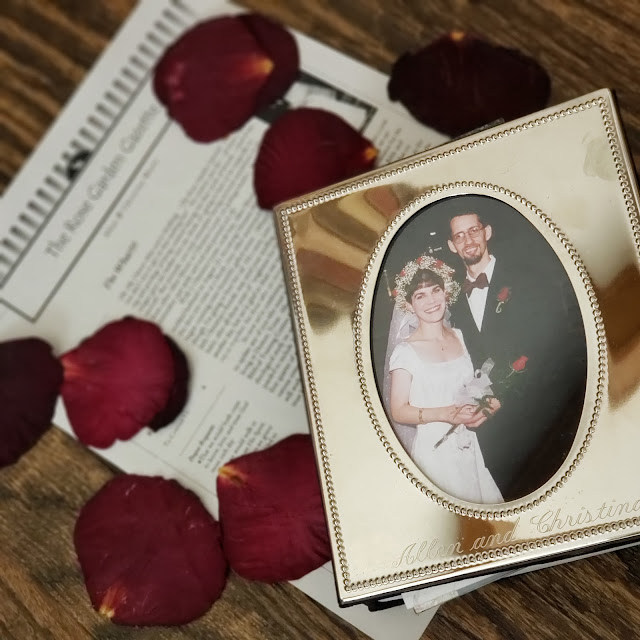Psalm 27:4-6, NIV
 |
| Our dawn sky today |
What is your “one thing?” If the Lord told you, as He did
Solomon, that he would give you any one thing you asked, what one thing would
you seek? Health, family, financial security? Success, influence, popularity?
Wisdom, advanced degrees, expertise? Marriage, children, reconciliation,
forgiveness?
In Psalm 27:4 and elsewhere, David—the man after God’s own
heart—says that his “one thing” is to dwell with God, to behold Him face to
face.
This is the third essay in our series reflecting on Psalm
27. In this psalm, God through David has given us a prayer-song for when we are
afraid of the dark: whatever kind of dark, literal darkness or emotional and
spiritual darkness. David seeks shelter in God’s personal presence with
confidence borne out of His past rescues, and so can we. In the first post, we considered the themes and structure of the prayer as a whole. In the second
post, we reflected on the first section of three verses. In that first section
(27:1-3), David describes his experience of God’s saving defense. In this post
we are looking at the second section (vv. 4-6), in which David expresses his
expectant desire for God’s sheltering presence.
In David’s time, the tabernacle had already passed into cultural
memory. Only the ark of the covenant, which was the gold-covered chest holding the tablets of the law God gave to Moses, remained. It had been captured by the
Philistines before David’s time but was returned in David's lifetime to Jerusalem, God’s chosen city
for the Hebrews to worship Him. It was housed in a tent, but not the beautiful, God-designed tent of meeting
from Moses’ time. The temple, however, had not yet been built. David lived between the tabernacle of the past and the temple yet to come.
David desperately wanted to build a glorious house for the ark
representing God’s presence; it would be the one designated place for ritual sacrifices
to occur. When he told his desire, however, the Lord told him that
David was not to build Him a house, but instead, God would build David a house.
A dynastic house. And David’s son Solomon would in fact be the one to build a
house for the worship of Yahweh, the God of Israel. We call this promise the
Davidic covenant; in it, God promised that David’s descendants would be the
rightful rulers of Israel. (This conversation can be read in 2 Samuel 7.)
Since David could not do what he wanted, he did what he
could. He dedicated the spoils of his battles to the splendor of the temple to
come. Moreover, David told Solomon in 1
Chronicles 28:19 that the plans he was giving his son had been revealed to
David by God Himself. To some extent, in some spiritual sense, David glimpsed what
the temple would be, though it was not build during his lifetime. He even wrote
a prayer-song for its dedication, as the epigraph of Psalm 30 notes.
In the above verses from Psalm 27, David freely uses a
variety of terms for God’s dwelling: house of the Lord, temple, dwelling,
shelter, and sacred tent (or tabernacle). The common connection among them all
is the God who dwells there. More than anything in the world—and David had wealth, power, influence, celebrity,
and success—David wanted to dwell with God. In God’s presence, he finds beauty,
shelter, victory, worship, and joy.
With Him, every wilderness was a castle, a paradise;
without Him, every castle was a wilderness.
The New Testament reveals that Jesus is the true tabernacle
and temple (John 1:14; 4:21-24; Hebrews 8:1-2, 5; 9:8, 11, 21, 23-28; 10:19-25).
Jesus is for all time the presence of God in human flesh. He is the dwelling
place of God.
Revelation indicates that all the tabernacles and temples
of the past pointed forward to the new creation on the way to us, when the
dwelling of God will be with men in the fullest possible way: “And I heard a loud
voice from the throne, saying, ‘Behold, the tabernacle of God is among men, and
He shall dwell [tabernacle] among them, and they shall be His people, and God
Himself shall be among them, and He shall wipe away every tear from their eyes,;
and there shall no longer be any death; there shall no longer be any mourning,
or crying, or pain; the first things have passe away’” (Revelation 21:3-4, NASB1995).
In that age there will be no more temple, “for the Lord God, the Almighty, and the
Lamb, are its temple” (Rev. 21:22, NASB 1995).
Do you remember from the first essay in this series that I
said, when I am afraid of the dark, when I am in a three-o’clock season of the
soul, the two things I want most are a light and a person. Last time we focused
on the light God gives. This time David points our attention back to a person,
the person of the Triune God.
David’s “one thing” to dwell in God’s presence and gaze on
His loveliness is the birthright of all who have been born again into God’s
family by grace through faith. John’s gospel, in particular, emphasizes that
the believer dwells or abides in God, and God abides in Him. We who believe in
Jesus are never separated from God’s presence. He is nearer than our next
breath. He is intimately acquainted with all our ways. He never leaves us alone
in the darkness, and the darkness is not even dark to Him (Psalm 139).
He is not repelled by our sorrow, brokenness, and sin. No matter what we are going through right now, we are never “too much” for the Lord Jesus. In fact, the Puritan preacher Samuel Rutherford wrote from his imprisonment for the gospel, “There is no sweeter fellowship with Christ than to bring our wounds and our sores to him” (
The Loveliness of Christ, Kindle location 130). The young Scottish pastor Robert Murray M’Cheyne advised, “Learn much of the Lord Jesus. For every look at yourself, take ten looks at Christ. He is altogether lovely. Such infinite majesty, and yet such meekness and grace, and all for sinners, even the chief! Live much in the smiles of God. Bask in his beams” (
Memoir and Remains of Robert Murray M’Cheyne, 293).
His love enlightens our darkness. His presence comforts our
loneliness. Should we lose all lesser “one things” as Job did, should we even
lose our earthly lives, we have enough and more in Christ Jesus. Any other
thing we place on the throne of our lives will eventually disappoint, but Jesus
never will. His love is better than health, wealth, power, or fame. His
presence is better than family, earthly friendship, marriage, or children. “His
love hath neither brim nor bottom. Go where ye will, your soul shall not sleep
sound but in Christ’s bosom. I find that our wants qualify us for Christ”
(Samuel Rutherford, The Loveliness of Christ, Kindle location 177).
Even when we feel our lives have hit rock-bottom, we have not found the bottom of His mercies, grace, love, and kindness. His love is deeper than our deepest needs and wounds. His love is stronger than whatever holds us in bondage. His love is greater than all we lack or lose.
Is this finding you in a season of darkness, beloved? Take
your wants and your wounds to Jesus. Let His smile shine into your darkness.
Lean into His presence by faith, if you cannot by feeling. If you can’t say with
David that the Lord is your one thing, let’s ask together that it may be so.
Please pray with me.
“Grant, most sweet and loving Jesus, that I may seek my
repose in You above every creature; above all health and beauty; above every
honor and glory; every power and dignity; above all knowledge and cleverness,
all riches and arts, all joy and gladness; above all things visible and
invisible; and may I seek my repose in You above everything that is not You, my
God. You alone are most beautiful and loving, You alone are most noble and
glorious above all things. In You is every perfection that has been or ever
will be. Therefore, whatever You give me besides Yourself, whatever You reveal
to me concerning Yourself, and whatever You promise, is too small and
insufficient if I do not see and fully enjoy You alone. For my heart cannot
rest or be fully content until, rising above all gifts and every created thing,
it rests in You” (Thomas à Kempis, The Imitation of Christ).
I ask these things in the name of Christ Jesus our light
and our love. Amen.






